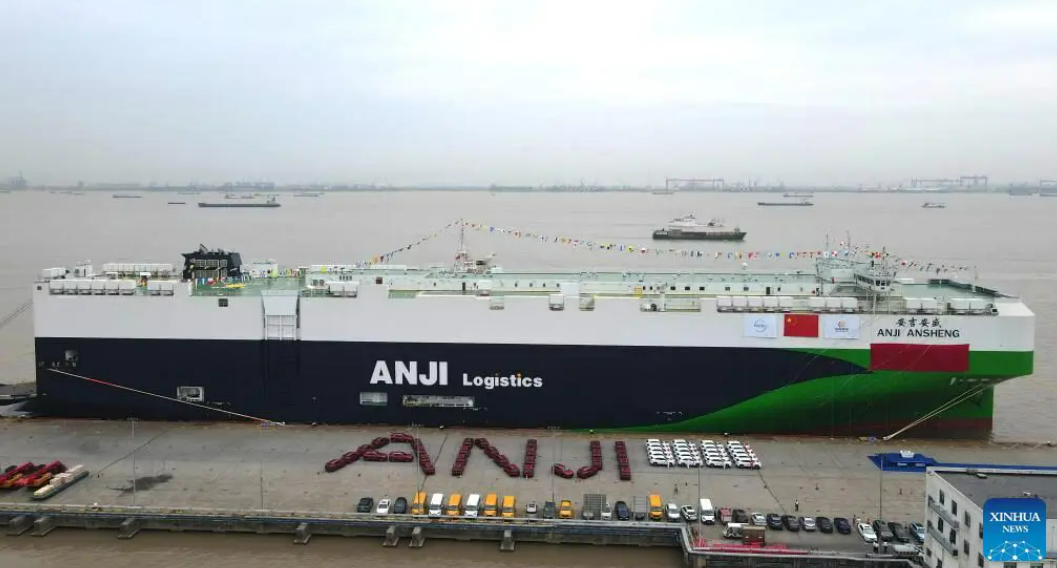
China, 20 May. - The departure from Shanghai marks a milestone and surpasses the record set a few weeks earlier by BYD Shenzhen, a domestically-built car carrier ship of major Chinese automaker BYD. This ship held until then the title of the largest car carrier in the world in operation.
“The fact that this record has been broken again in less than a month reflects the rapid growth of China's mid- and high-end manufacturing sector, and the resilience and vitality of the country's foreign trade despite complex global conditions,” said Gao Yuning, deputy director of the School of Public Policy and Management at Tsinghua University.
Anji Ansheng measures 228 meters long and 37.8 meters wide, with a maximum capacity to carry 9,500 standard vehicles, said Zhuang Jingxiong, general manager of SAIC Anji Logistics Co., Ltd., a subsidiary of SAIC Motor Corporation Limited.
The vessel integrates advanced energy-saving technologies and intelligent low-carbon systems, achieving world-class energy efficiency. It also incorporates a methanol refueling design, laying the foundation for achieving carbon neutrality in the future.
“China's batch construction and delivery of car carriers are boosting maritime cars transport capacity of the country to new heights," said Zheng Hehui, deputy general manager of China Merchants Industry Holdings, a subsidiary of China Merchants Group.
According to SAIC, the company had delivered more than 5.5 million vehicles to international markets by the end of 2024, ranking it among China's leading automobile exporters. SAIC's annual overseas sales have exceeded 1 million units for three consecutive years.
China's automobile exports exceeded 6.4 million units in 2024, maintaining its top position globally for the second consecutive year, according to the General Administration of Customs of China.
Data from January to April 2025 show that the country exported more than 1.93 million vehicles during the period, a year-on-year increase of 6 percent.
Take Shanghai Haitong International Automobile Terminal, where Anji Ansheng departed from, as an example. Despite the uncertainty surrounding global trade during the first four months of this year, the port exported 740,000 vehicles during that period, representing a year-on-year increase of 25.1 percent.
«This momentum reflects not only the growing competitiveness of Chinese brands, but also the strong capabilities of China’s automotive industry,» said Cui Dongshu, general secretary of the Passenger Car Association of China.
China's growing competitiveness was also evident at the recent 2025 Shanghai International Automotive Industry Expo, which attracted more than 12,000 foreign dealers.
«China is doing a great job in terms of technology, and the cars are very reliable. People trust Chinese cars. I think they see good value for money in them», said Agustín García, CEO of the Spanish group Sarmovil Auto.
SAIC's Anji Logistics currently operates one of the world's leading vehicle transport fleets. By 2026, its oceangoing fleet will reach 22 vessels, with routes covering Western Europe, Mexico, Southeast Asia, the Middle East, and other key export destinations for Chinese automakers.
"For automakers, owning a fleet ensures stable export operations, reduces transportation costs, and ensures timely delivery of products to foreign customers," said Xie Xiaowen, an expert of the China Communications and Transportation Association. (Text and Photo: Cubadebate)